OPINION |
There it was, as foretold. A red sign pointing the way: “Camel Ride 1500 feet ahead.”
This was 48 miles north of Springfield along Highway 65, in Louisburg, Dallas County.
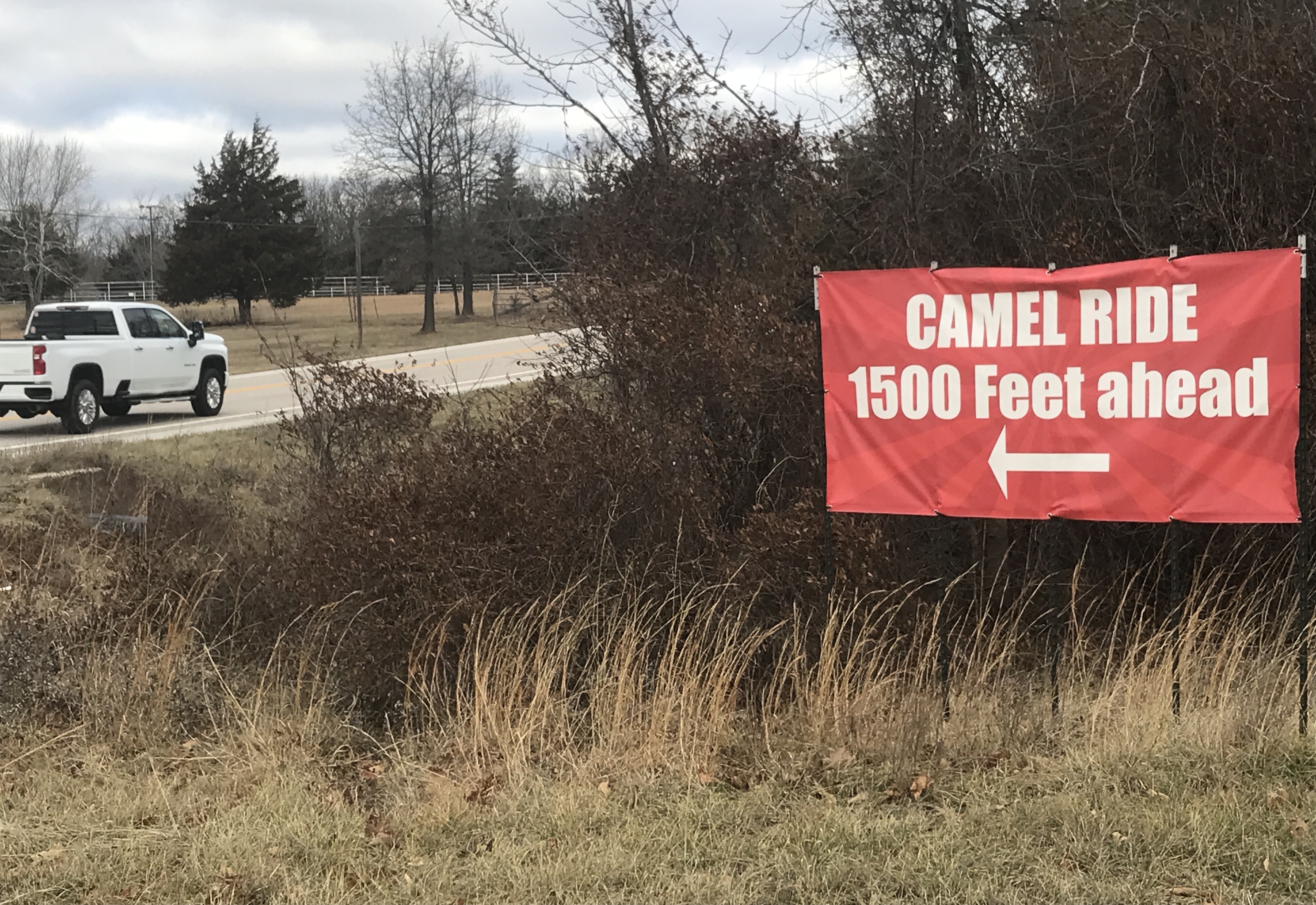
It was Wednesday, a bright day for a drive, a fine day to check out a story tip from former News-Leader colleague Dean Curtis.
No, I did not want to actually ride a camel. Riding a camel is not on my bucket list.
Instead, I found the notion of camel rides in rural Dallas County, Missouri, intriguing — an odd roadside attraction.
Hop aboard; a camel ride costs $5
The company offering the rides has a name: R & P Camel Company. It has a Facebook page and a website.
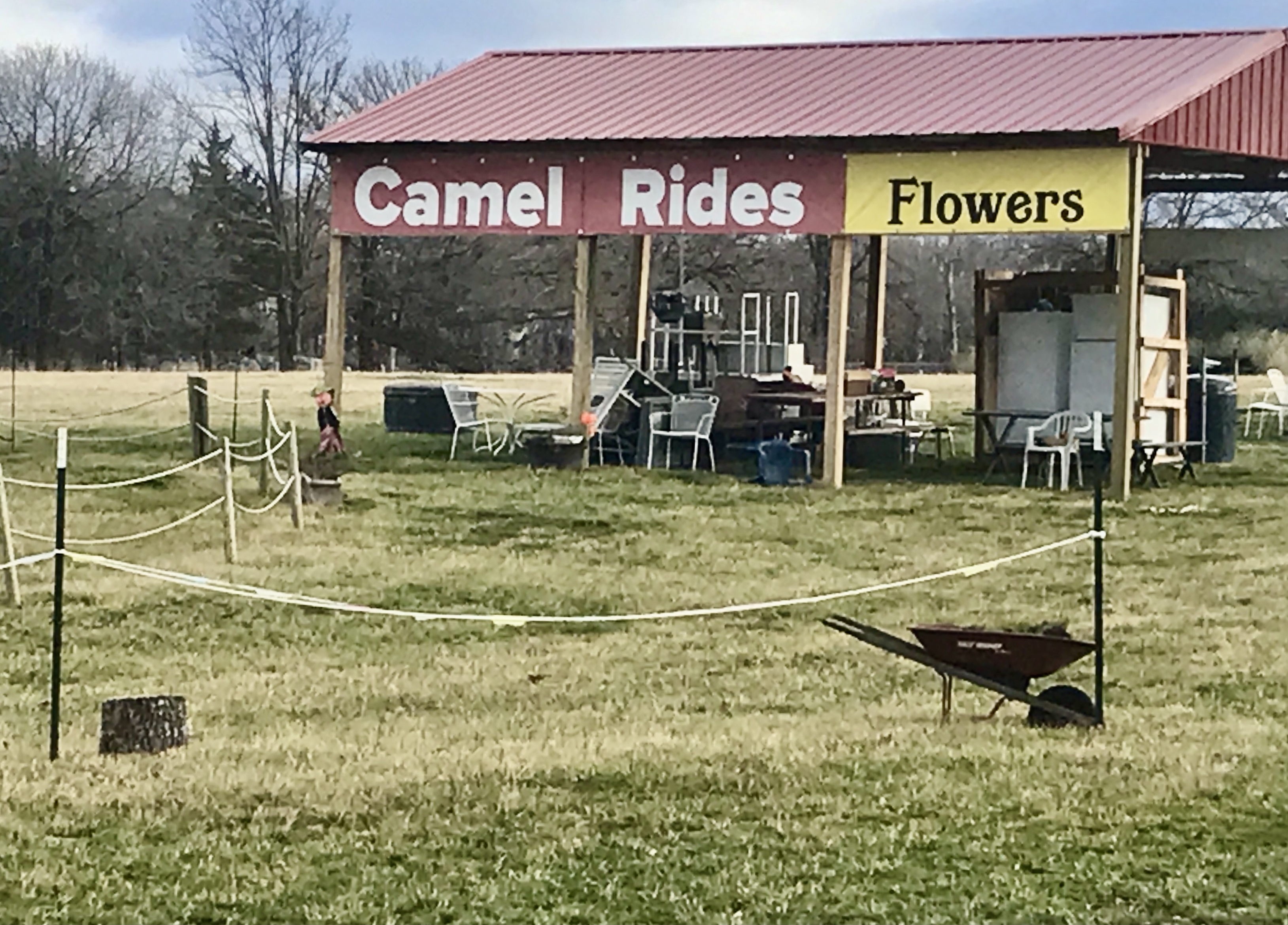
It ends up I could not have gotten a camel ride if I wanted. The business opens Memorial Day weekend and runs through the third weekend of August. It costs $5 to ride.
It's a long-time family business and the first family member I meet is Chip Malchow, 59, who lives next to the small pasture where the camel rides are offered.
He exits his house before I can knock on his door; I stand amid his many alert dogs, with chickens nearby. I ask if he has a camel-ride connection. He does.
“We have been doing zoo rides for years and years,” he tells me. “But COVID put us out of business.”
COVID hit so they opened local site
For decades, he says, the family contracted out the camels — yes, “camels” as in plural — to give camel rides at zoos across the nation. But the pandemic stopped that. So in 2021, the family opened a petting zoo and camel rides on the piece of land they own along Highway 65.
The petting zoo includes pigmy goats, Rusty the miniature horse, a team of Percheron horses and baby cows.
I ask: Where do the camels reside?
He directs me to his brother's 40-acre tract about a mile away.
It's his brother, Rod, 57, who runs the camel business.
They also rent camels for Christmas pageants and nativity scenes
Rod's not there, but sister Tammy Kaup, 56, is.
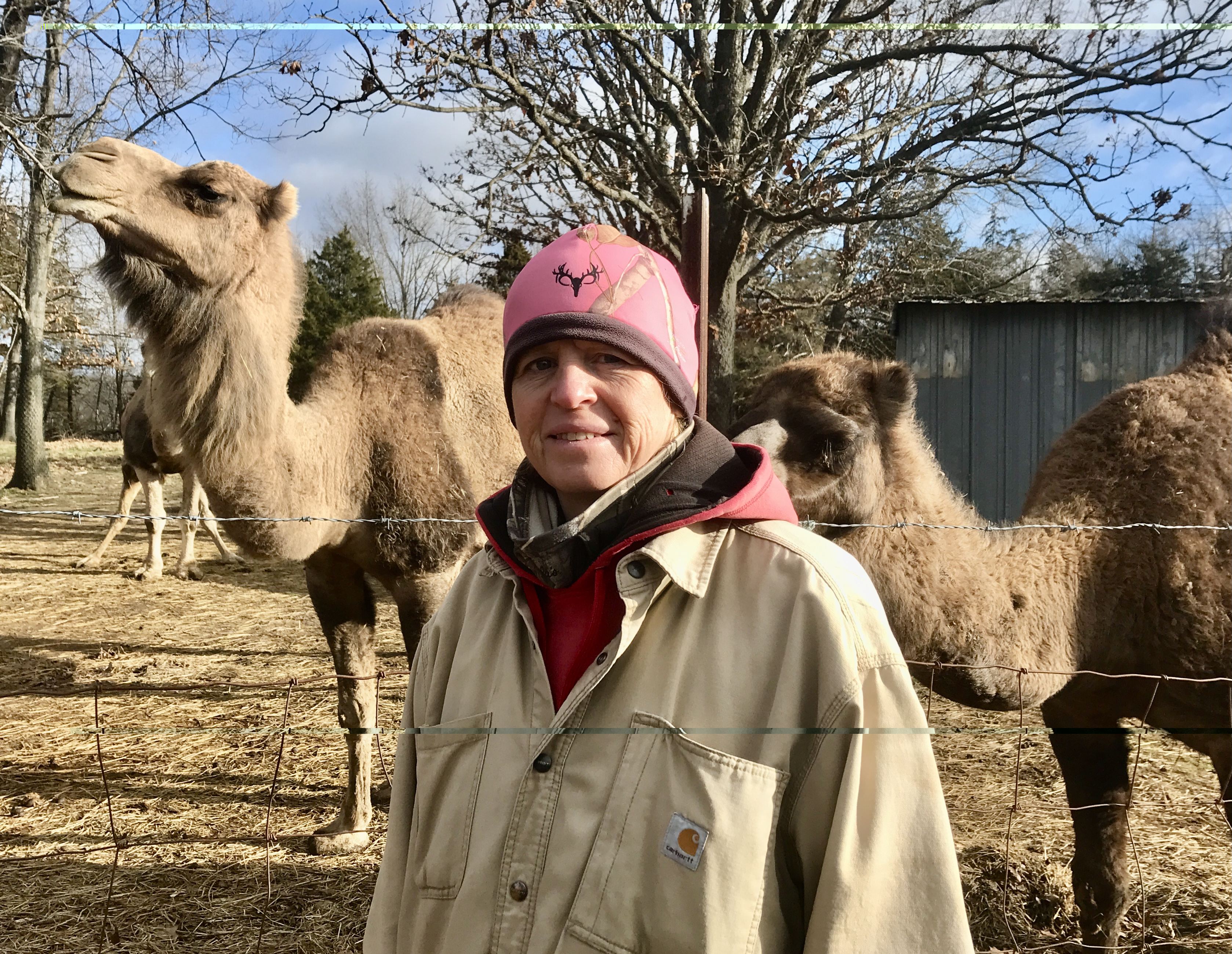
Everywhere I turn I see camels.
There are about 20 of them, she says, including two 8-month-olds in a nearby stable.
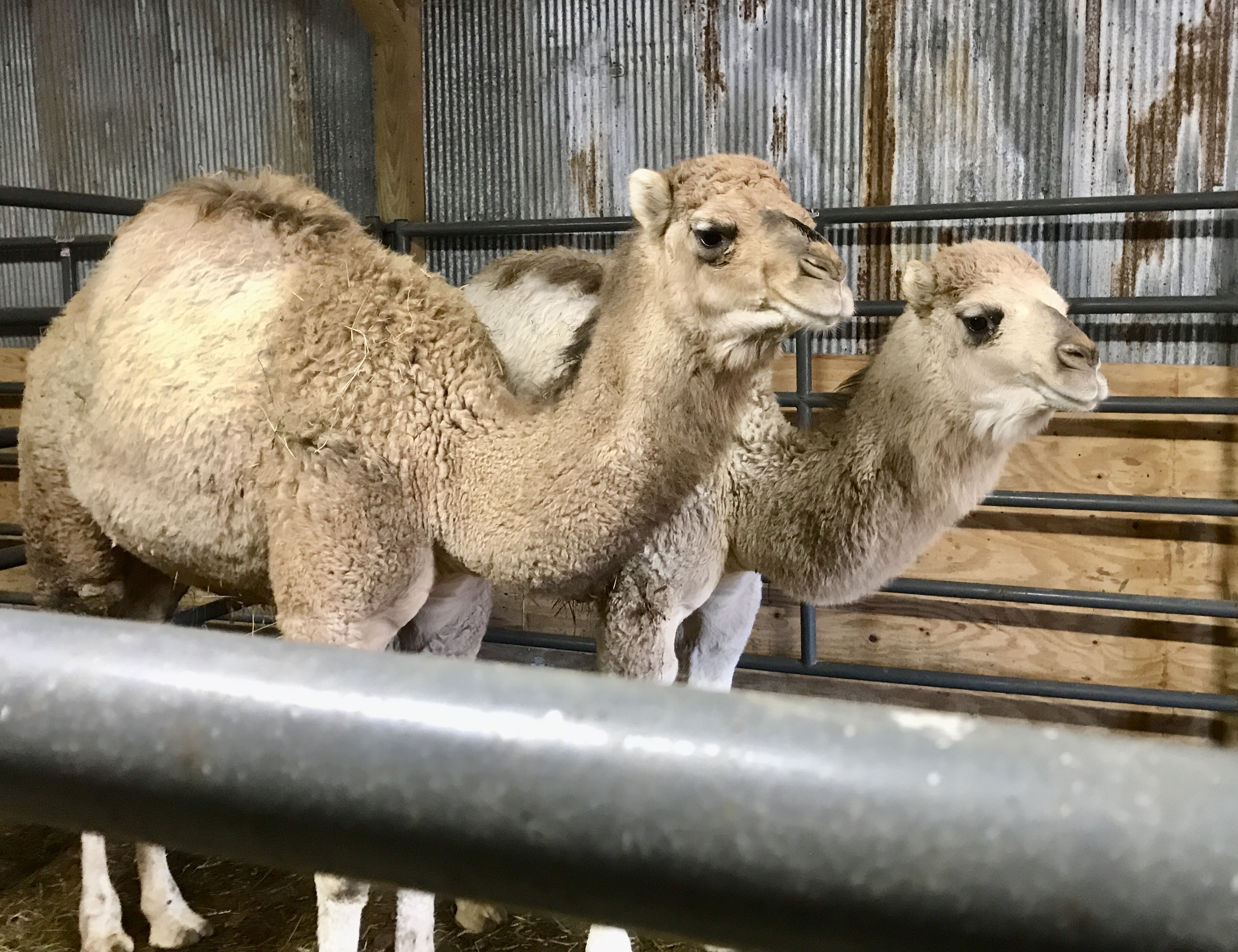
The Main Man here, camel-wise, is Gus, the bull camel whose No. 1 job it is to make babies.
Part of the business, Kaup tells me, is to sell an occasional camel. Part of the business is to rent camels for Christmas pageants and nativity scenes.
Last month, for example, they rented camels to James River Church as well as to a church in Chicago.
And yes, part of the business is the camel rides.
“People will ask if it's just for kids,” she says. “For heaven's sake, no. It isn't just for kids. On Highway 65, we get travelers from all across the nation. People from other countries. They are always amazed there are camels in the middle of Missouri.”
Some don't mind being ridden, others do
Camels are laid back, she says, and have distinct personalities. Some don't mind being ridden. Others do, so they aren't.
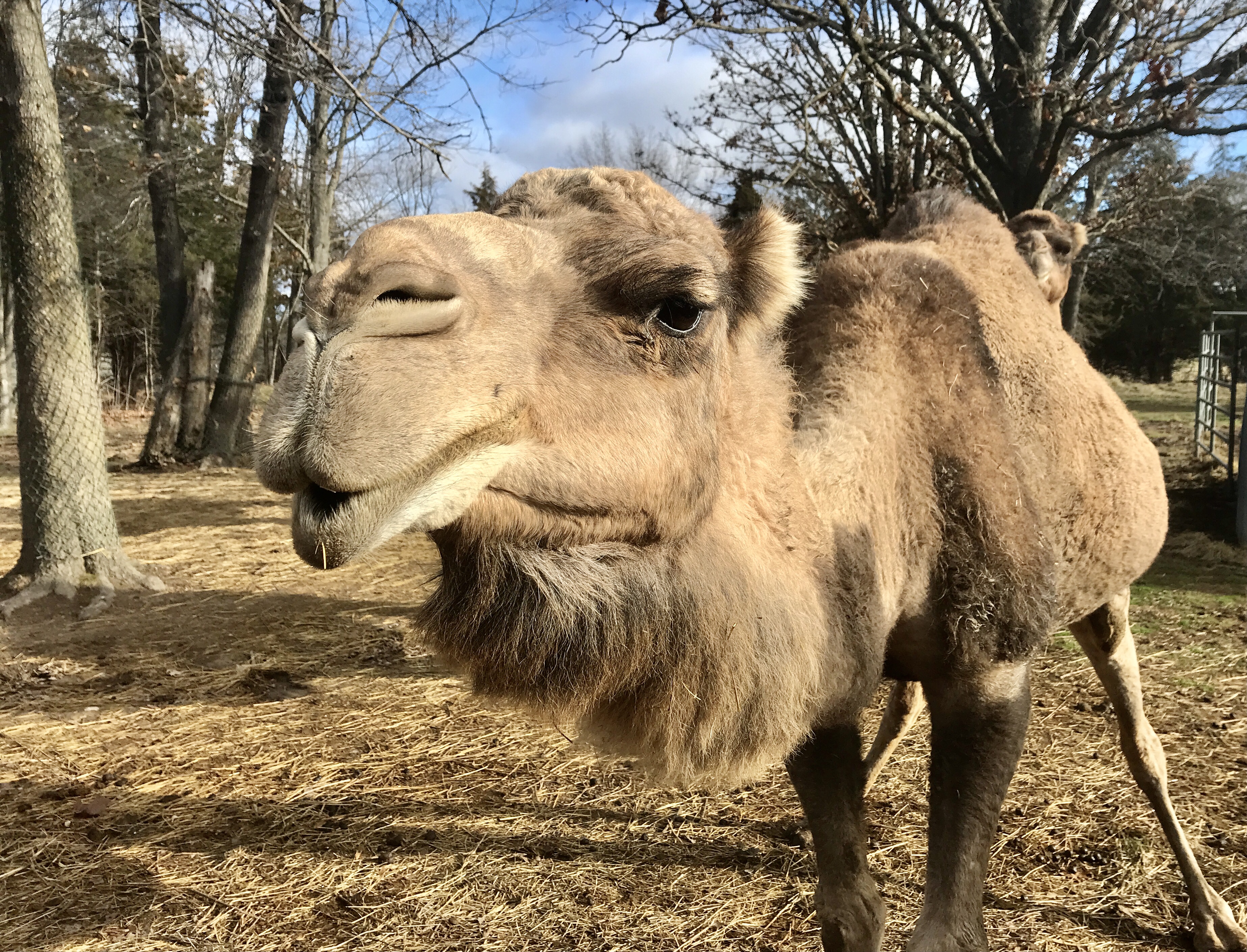
“Some of them like people. Some of them are more like, ‘it's ok if you look at me but don't get too close.'
“They're kind of like cattle,” she says. “They just walk around and browse.”
Their camels are Dromedary, with one hump. The other species, Bactrian, has two humps. About 90 percent of the world's camels are Dromedary.
Kaup tells me that her family is from Nebraska and that she grew up in a home where her father had exotic animals: buffalo, bears, mountain lions and African lions.
The first camel foray for the family was 1984, she says. Someone with camels hired her father to go from Nebraska to a zoo in Buffalo, New York, to offer camel rides. She went with him.
Soon after, she says, her father started to buy his own camels.
Her brother Rod moved to Missouri some 30 years ago and continued the camel business.
‘I guess if we didn't enjoy it we wouldn't be doing it'
“It evolved into the family business, I guess you would say,” she says. “We are out here every day. Rain, shine, snow. It doesn't matter. They gotta get fed. I guess if we didn't enjoy it we wouldn't be doing it.”
Rod arrives but he's rushed because he has a sick animal. It was not a camel, he tells me later. He stays just long enough for me to take his photo with his sister.
Their father, 81, who started it all, lives nearby.
He tells me over the phone that he's not sure if “collect” is the right word for the exotic animals he owned back in Nebraska.
“It was a hobby. It was just something I wanted to do.”
Tell me an interesting tidbit about camels
Occasionally, he says, he will be at the petting zoo/camel ride operation on Highway 65 to lend a hand.
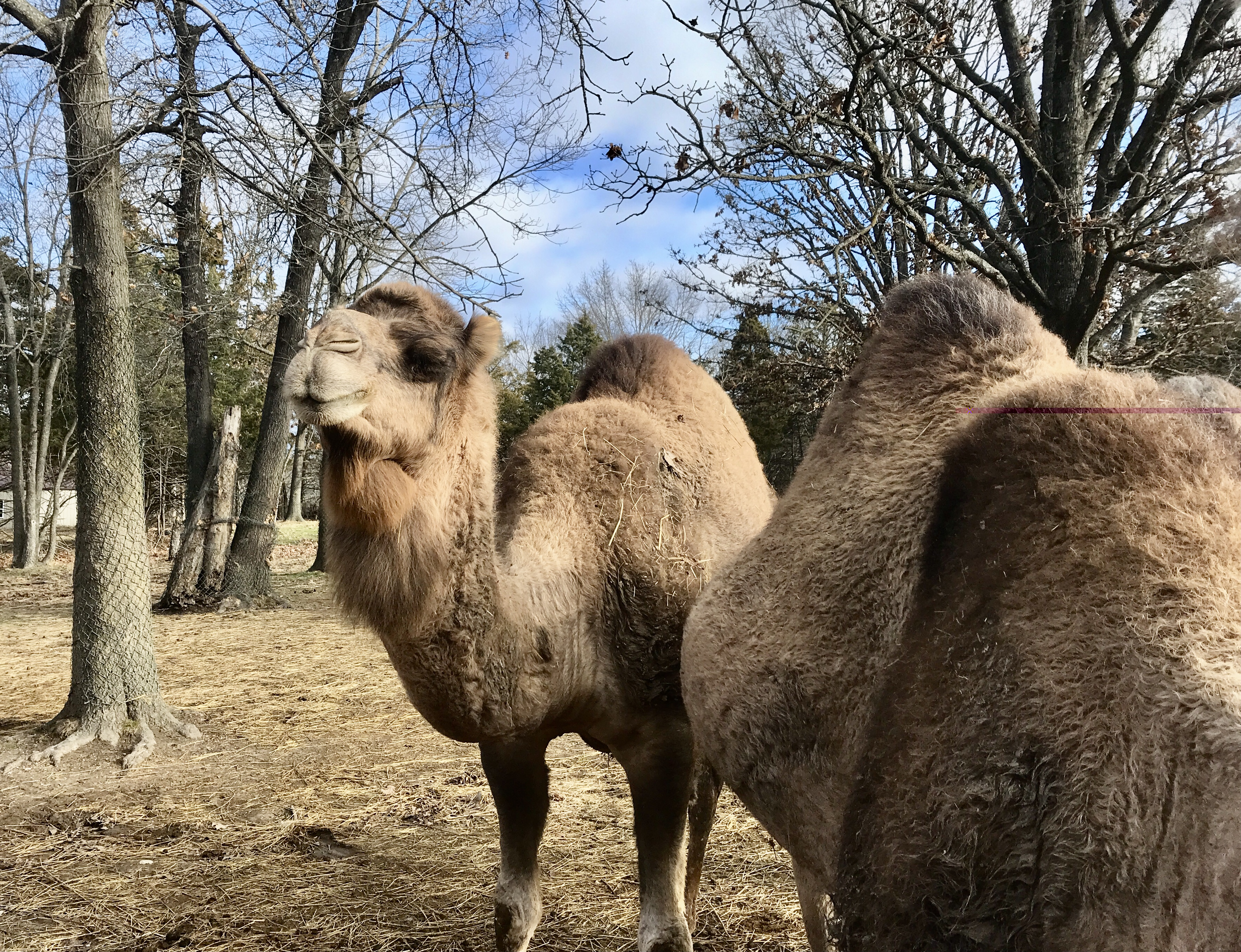
I ask: What's the most interesting thing about camels that most people don't know?
“They will eat thorn bushes. And locust trees with thorns. A camel will just eat that down like you was feeding it a candy bar. That is amazing.”
This is Pokin Around column No. 89.

